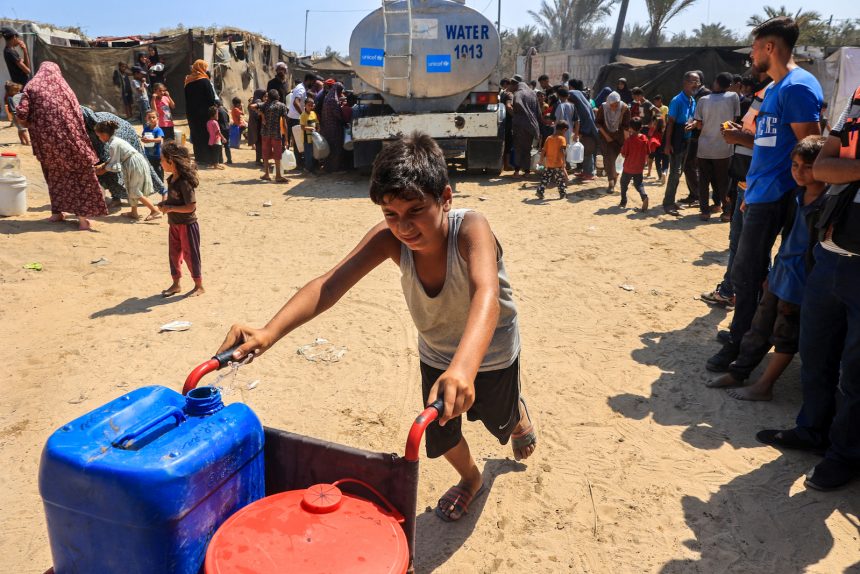Just weeks before the international climate summit in Dubai, a major Middle Eastern climate agreement between Israel and Jordan fell apart. The agreement, known as Project Prosperity, aimed to trade renewable energy and drinking water between the two countries to prepare for a hotter future. Israel planned to share billions of gallons of water with Jordan annually, while Jordan would provide electricity from a new solar farm in return. The United Arab Emirates supported the project financially, with the United States endorsing it as a positive step towards integration and cooperation in the region.
However, the progress towards finalizing the deal was disrupted by the October 7 attack on Israel by Hamas, resulting in a military campaign and a blockade of essential resources to Gaza, with widespread humanitarian concerns. The conflict created turmoil in Jordan as well, leading to protests and a decision to not move forward with the water-for-energy deal. Instead, Jordan accelerated plans for a substantial desalination project of its own.
The impact of the war between Israel and Hamas has not only affected the geopolitics of the region but also disrupted climate politics and cooperation initiatives. Before the conflict, Israel was seen as a hub for clean technologies, and Project Prosperity symbolized regional collaboration on climate solutions. The war, however, has prompted differing views among environmentalists and officials in the region regarding engagement with Israel, given the unresolved Israel-Palestine conflict.
The historical and political significance of water resources in the region, especially concerning the Jordan River basin, has long been a source of contention and conflict. Israel’s control over water resources following the 1967 war has led to disparities in water access between Israelis and Palestinians, with Palestinians facing significant challenges. The issue of water scarcity is exacerbated by climate change and population growth, particularly in Jordan, which has experienced a water crisis due to increasing demand and environmental pressures.
The ongoing challenges faced by both Israel and Jordan highlight the complex interplay between climate change, political conflict, and resource management in the Middle East. Cooperation on climate adaptation and sustainable resource management remains a key challenge in the region, with the potential to be a catalyst for peace and stability amidst ongoing tensions.






